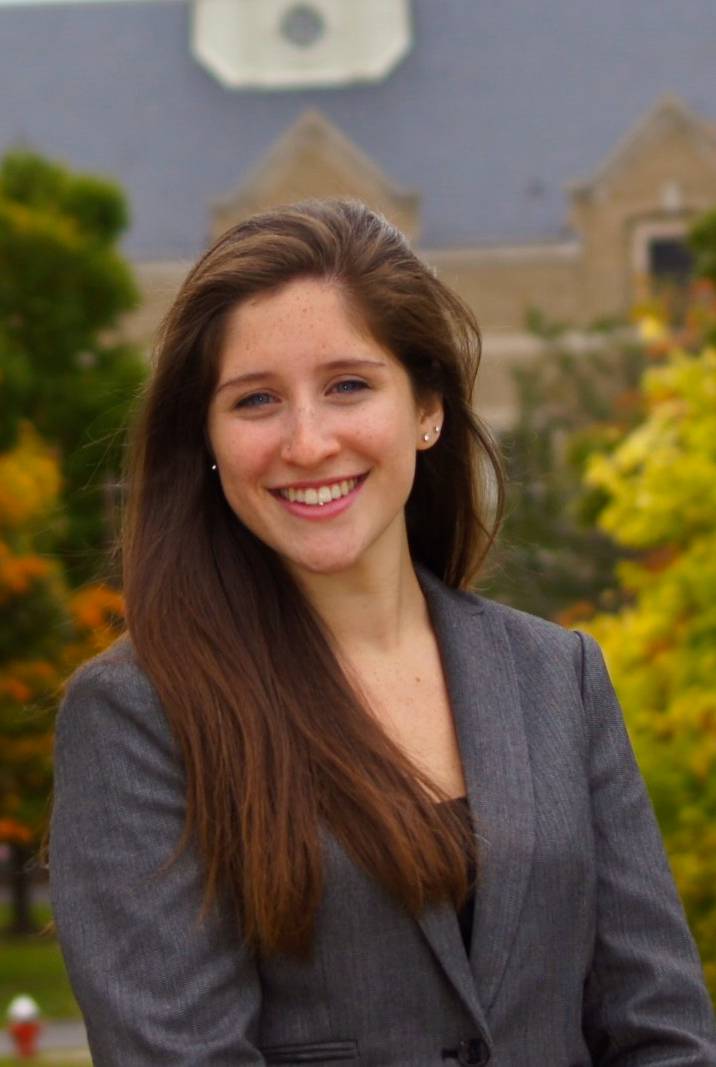Student Spotlight
Kelsey Sklar

Hometown: Katonah, New York
Degree Program: MD/MPH, Community Health Concentration
Class Year: 2022
Undergraduate Major: Human Biology, Health and Society
Professional Interests: Health Justice and Community-Engaged Research
Extracurricular Activities/Involvement: Health Equity, Advocacy and Leadership Pathway, Medical Educator Pathway, Students for a National Health Program, Downstate Students for Reproductive Choice, Ultrasound Interest Group, and teaching yoga through the Student Center
1. What drew you to the MD/MPH program at SUNY Downstate Health Sciences University? Why did you choose to study public health?
I see public health as an opportunity to achieve health equity. SUNY Downstate is located in Central Brooklyn, a community in which health has suffered the consequences of many different systems of oppression – racism, xenophobia, classism, ableism and more. We have a duty as future medical providers to learn the histories of these systems, how they are upheld, and how to disrupt them in our day-to-day work.
When I applied to medical school, I was asked in my Downstate interview what I see
as the greatest obstacle to improving the health outcomes of a population. My answer
was, and still is, “trust.” If you cannot establish meaningful, equal partnerships
with the community you serve, then your efforts to provide care are futile. To establish
trust, we need more healthcare providers who practice with public health at the forefront
of their decisions.
2. What is your favorite aspect of the program and what have you gained from it?
Definitely the close-knit community! I have made lasting connections with SPH professors
and community organizations that are paired with our school of public health. I have
been able to learn from and participate in the creation of authentic community connections.
3. Can you recall a memorable in-class or general SUNY Downstate experience that struck you as particularly meaningful?
During my second year, I worked with medical students with MPH backgrounds to plan
an inaugural Social Justice in Health conference at SUNY Downstate. I was supported
by faculty and staff at the School of Public Health who helped me find community activists
and speakers. I realized that there are countless organizations, many grassroots,
addressing health inequities in their communities; as the only academic medical center
in Brooklyn, we must find a way to empower and partner with these organizations filled
with community experts.
4. Could you describe your activities and involvement at SUNY Downstate?
Through the pathways and clubs that I mentioned above, I’ve been connected to various research projects/field experiences with the STAR Health Program, Arthur Ashe Institute for Urban Health and Department of Family Medicine. I’ve also been able to plan and lead various health justice events on campus, from Single Payer 101 to trainings on how to lobby as a healthcare worker.
5. What are your goals? Do you have plans to further your education or do you have a career in mind upon graduation?
My goal is to improve community health outcomes through both clinical medicine and
community-based participatory research.
6. Do you have any advice for someone who might be interested in Downstate’s MD/MPH program?
I am glad that I decided to do the program in 4 years, with MPH classes starting the
summer before medical school. My interests have grown and expanded tremendously from
when I started medical school; if I had done my MPH program in 1 year during or prior
to starting my MD, I might not have had the opportunity to pursue meaningful research
and community engagement.
7. Is there anything else you would like to highlight about yourself, your education, community involvement, career goals, etc.?
Medical students have so much power to make changes in their institutions; we are trained to be advocates for our patients and we must step up and take on the responsibility. I am currently working on curriculum reform and hope to aid in training the next generation of physicians in using healthcare advocacy to achieve health equity.